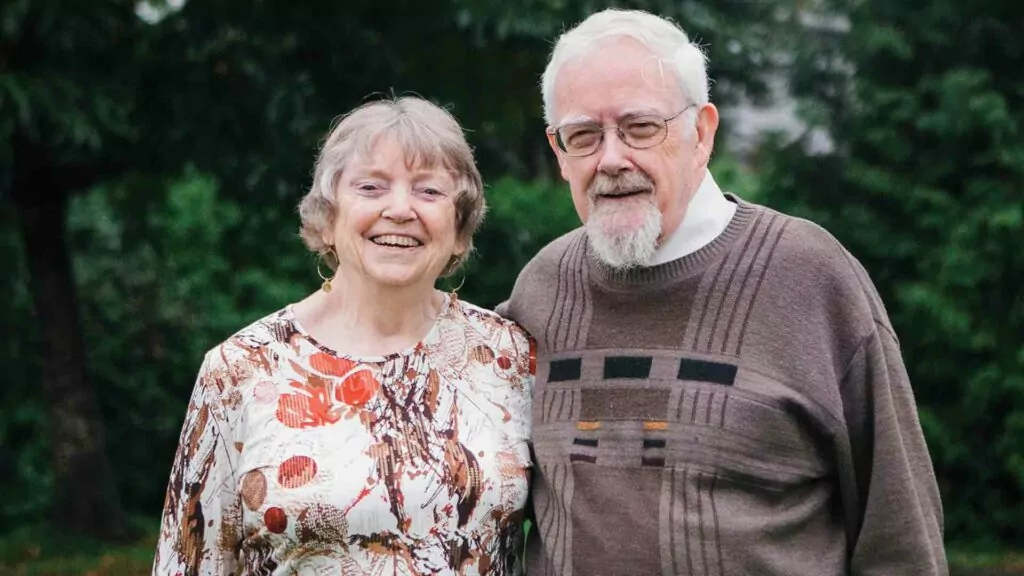
In a Nutshell
Tidbits – January 2024
It was the best and worst of times
"The Christian only has to endure this world, this is as bad as it gets for us. But non-Christians have to enjoy this world, this is as good as it gets for them!”
– Kel Richards’ The Case of the Damascus Dagger
Titles worth the price of the book
I’ve read my favorite writing book a few times now, but in recent years, when I’m battling a bout of writer’s block, I don’t need to read it. I can just pull it off the shelf, take a good long look at the title there on the cover, and that’s enough: If You Can Talk, You Can Write. Here are a few other books with especially instructive titles.
- Everyone’s a Theologian – R.C. Sproul knows theology – the study of God – isn’t just for pastors, but for parishioners too.
- Why It Might Be OK to Eat Your Neighbor: If atheism is right can anything be wrong? – Sometimes a title can be too good. I haven’t read this one, and feel like, after reading this fantastic title, I might have gotten enough of the gist that I don’t need to.
- Fire Someone Today – This is a business book by a Christian businessman, Bob Pritchett, running a Christian company, and he found out that, while you want to do right by your employees, it is also good to recognize God does give out different talents, so sometimes firing an employee who can’t measure up is actually freeing them up to find out what they really should be doing.
- Amusing Ourselves to Death – Neil Postman’s oldie but goodie is still applicable in a time when social media contagions have folks amusing themselves right into cutting off healthy body parts.
- Do Hard Things: A teenage rebellion against low expectations – Two teens, brothers Alex and Brett Harris, wrote a challenge to teens to pull up their socks… and make their beds… and clerk for Supreme Court Justices.
- Oops! I forgot my wife – How many wives suffer from neglect? This one’s a humorous, fictional smack-down on the self-centered husband written by a counselor who wants to help them change.
- Just Do Something – Looking for God’s will for your life, and stuck in neutral trying to figure out what it is? Kevin DeYoung has some help for you and it starts on the front cover!
- Do Not Be True to Yourself – Another from Kevin DeYoung, gets right to the point. We were made to glorify God, not ourselves!
- Wolf in their Pockets – Occasional RP contributor Chris Martin wrote a book on smartphones and social media that’s well worth reading, but the title offers quite the refresher all on its own.
- Eichmann in Jerusalem: A Report on the Banality of Evil – Author Hannah Arendt reported on the trial of one of the most notorious of Nazis, Adolf Eitchmann, and as her book's subtitle notes, what struck her was how frighteningly ordinary he was. She recognized, to the displeasure of many, that being evil, even enormously evil, isn't a big leap for most of us,
National debt costs $3 a day in interest for every man, woman, and child
In a Sept. 15 press conference, Christian Heritage Party leader Rod Taylor noted that:
“…Canada is deeply in debt. The federal government owes about $1.2 trillion. A trillion is a thousand billion and a billion is a thousand million. Our current government is adding to that debt at the rate of $109 million per day. And what is that debt costing? $120 million every single day in interest alone.”
With a population of almost 39 million, that works out to an average of around $100 a month or just over $1,100 a year that the Canadian government will have to take from every man, woman, and child in Canada, just to service our interest payments. Of course, they aren’t even managing that, which is why our debt continues to grow, increasing the burden for the next generation. That is not the sort of inheritance that the good man of Proverbs 13:22 is supposed to leave for his children’s children.
A dozen deep thoughts
- A clear conscience is usually the sign of a bad memory.
- Change is inevitable, except from a vending machine.
- Save a tree. Eat a beaver.
- Always remember that you are unique; just like everyone else.
- Few women admit their age; few men act it.
- Never answer an anonymous letter.
- Was the pole vault accidentally discovered by a clumsy javelin thrower?
- Two wrongs may not make a right, but three lefts do.
- If you try to fail, and succeed, which have you done?
- Can you buy an entire chess set at a pawnshop?
- If Americans throw rice at weddings, then Asians must throw hamburgers.
- Don’t think that you’re thinking. If you think that you're thinking you
only think that you're thinking.
5 ways to improve instantly that require no talent
If your basketball team tryouts are tomorrow, it’d be great if you could shoot 40% from the 3-point line. The coaches would love that! But that’s a skill that takes years to develop, so if you don’t already know how to do it, there’s not a lot you can do about it between now and tomorrow.
But there are things you can do right now that don’t require any skill, but could get you noticed by a coach. These could make you a valuable member of the team instantly, and they go way beyond just sports. If it’s tough to keep all five in mind, then focus on couple, or three, for now.
- REALLY LISTEN – It’s one thing to listen, and another to engage your brain and interact with what your coach is saying. How many of your teammates are thinking through why the coach has you running this particular drill? If you know the why behind the what you’ll be able to make the most of your practice time, and your skills will grow. Listen with your brain!
- BE ON TIME – If you’re just 5 minutes late, but 11 teammates and a coach are waiting for you, you’ve just blown an hour’s worth of practice time (12 x 5 = 60 minutes). So respect your coach and teammates’ time by showing up just a bit ahead of when you’re supposed to.
- OUTWORK YOUR OPPONENT – A mediocre player giving 100% may be able to shut down a much more skilled player who’s going just 80. The trick here is that we often think we’re giving it our all, when we actually have a lot more in the tank. So analyze your effort.
- HAVE A POSITIVE ATTITUDE – There are professional athletes who make millions without ever getting on the court – they’re wanted just for their positive presence on the bench and in the locker room.
- GOOD BODY LANGUAGE – Show your positive attitude. Just as an athlete can show attitude toward his coach and teammates without saying a word, you can give them a boost by walking around with energy, whooping it up from the bench, and just keeping the energy flowing!
Dad joke refresher
For the fathers out there needing some new material…
- I asked the beekeeper for a dozen bees, and he gave me thirteen – he said the last one was a freebee.
- The Texan I dated broke up with me; she said I was just too un-American. I should have seen it coming a kilometer away.
- Yesterday I was painting the house with my son. He said, “Dad, can’t you just use a paintbrush?”
- My wife asked me if I’d seen the fish bowl. I told her, “I never imagined he could.”
- My wife really knows nothing about sports. When I told her I’d gotten a hole in one, she went and got me a pair of socks.
- I hear some people pick their nose, but I never got consulted.
- How do flat-earthers travel? On a plane.
- My wife is into philosophy. On our last date night, when I got the chicken salad she picked the egg salad just to see whose order would come first.
- I can’t keep up with the abbreviations kids use these days and my daughters are no help. When I asked what “idk” stood for, they all pretended not to know.
When the mask comes off
Laura Klassen’s pro-life organization Choice42 regularly saves babies from abortion by helping out their moms. And when a baby is born, the thankful mom will often share a pic with Choice42, to encourage other moms to make the same choice. But a curious thing happens when Klassen posts one of these baby pictures. Folks from the other side blow a gasket. But why? As Klassen notes:
“Funny how whenever we post pics of babies saved from abortion, some people get triggered and feel the need to comment about #abortionrights or their general hate for babies. A simple ‘congrat’ will do. After all, these women chose their babies, and y’all are #prochoice, right?”
Getting out of the friend zone
Commentator Aaron Renn has coined “The Kathy Keller Rule” for all of those out there stuck firmly in the dreaded “friend zone.” As he explained it in his newsletter some years back, getting stuck in the friend zone happens,
“…when one person wants more out of a friendship than the other person does…. one person wants to make the relationship romantic but the other person wants to remain friends.”
While it isn’t always so, the “wants more” is often the girl, while “just friends” is typically the guy. There can be some cluelessness to this; the fellow might not be stringing her along on purpose. But intentional or not, he’s enjoying some of the joys of a real relationship – the flattering, even ego-boosting, attention of the opposite sex, and the convenience of having someone who’ll drop most anything to go see the latest movie with you – without having to actually give her much of himself. This one-sided exchange is only possible because there is what Renn calls an “asymmetry of intent.” He gives as an example, a story Tim Keller tells in his book The Meaning of Marriage, about Keller’s relationship with his wife.
“Though we were best friends and kindred spirits, I was still hurting from a previous relationship that had ended badly. Katy was patient and understanding up to a point, but the day came when she said, ‘Look, I can’t take this anymore. I have been expecting to be promoted from friend to girlfriend. I know you don’t mean to be saying this, but every day you don’t choose me to be more than a friend, it feels as if I’ve been weighed and found wanting – hoping that someday you’ll want me to be more than a friend. I’m not calling myself a pearl, and I’m not calling you a pig, but one of the reasons Jesus told his disciples not to cast pearls before swine was because a pig can’t recognize the value of a pearl. If you can’t see me as valuable to you, then I’m not going to keep throwing myself into your company, hoping and hoping. I can’t do it. The rejection that I perceive, whether you intend it or not, is just too painful.
“That’s exactly what she said. It got my attention. It sent me into a time of deep self-examination. A couple of weeks later, I made the choice.”
Renn then proposes “The Kathy Keller Rule”:
“Do not stay in a friendship where your desire for romance is persistently denied, but deliver an ultimatum (or ask the other person out on a date), exiting the friendship if the other person chooses not to reciprocate your desires.”
I think this is great advice. Really great advice even. But I’ll also add, this isn’t out of the Good Book, so take it for what it is – some common sense to consider, but not an 11th Commandment to be obeyed without question.
Just one issue?
“If you're pro-life, you realize abortion is murder. How can you say ‘it's one of many issues’ and vote for a pro-choice candidate? What policy of theirs could be so good that it's worth allowing millions of babies to be killed?”
– Seamus Coughlin






























